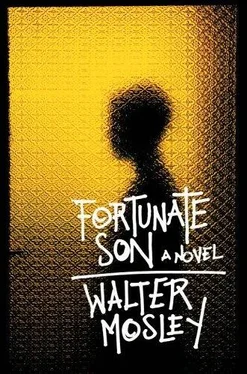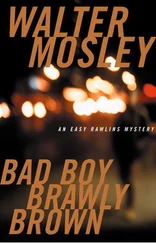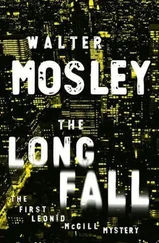After a conversation like this, Thomas would make a pact with himself that he would find a way to get new clothes and a bath and then he would find a job and make a life and Monique and Lily could come visit and even tough-minded Harold would be proud of him.
But after a week or so of trying to get enough money, Thomas would sink once again into despair. He’d drink wine sometimes but not too often. Being drunk made him confused, and he couldn’t find his place when he knelt to the earth trying to meld with the planet.
He went into the homeless shelters only rarely. The people there were scary, and made him too afraid to sleep. In the night when he was awake, all the sad noises of the men in the bunks around him made him want to run and scream.
So he spent most of his days wandering and his nights in lonely places where wild men and the police wouldn’t look.
He had a big umbrella for when it rained and a silvery, thin blanket that a young white couple had given him. The metallic coverlet was hardly thicker than tissue paper, but when the weather got cold he was always warm with the silver sheet wrapped around his skinny frame.
The years went by, and he hardly ever thought about Ahn or Dr. Nolan or Eric. Then one day he found a child’s book, written in French, about a skinny blond child named Madeline Blanchet. He stared at the book for a long time thinking that the name was trying to tell him something, something about him.
Toward the end of this part of his journey, Thomas found a pair of barely chipped sunglasses. The lenses were almost black, and wearing them Thomas could walk on the sunshiniest days and never wince at all. It was like walking in the darkness even though everyone else around him was in light. This was a deep comfort to Thomas. He wore these glasses every day, was wearing them as he walked down Venice Boulevard, a little past Fairfax, thinking that he’d reach the ocean again in a day or two and wondering what that child’s book was trying to say.
On the way he met a Mexican boy who was selling sacks of oranges to passing cars. When Thomas walked by, the boy broke open one of his bags and gave Thomas four large oranges.
He was thinking about how kind that boy had been and how delicious the orange was when he remembered his grandmother. Grandma Madeline. Once he remembered her name, the phone number came along with it.
“Niggah, what you want?” a thirteen-year-old tough standing among his posse asked. He flicked his hand out as if he intended to slap Thomas, who flinched in defense.
The six or seven boys laughed at the frail young man with the big chapped hands.
“Yeah, bum,” another boy said. “Why you stinkin’ up our air?”
“My grandmother,” Thomas said. “I need to talk to her.”
Thomas had used his last dollar three days before buying adhesive strips for his feet. His feet often bled from corns and chafing and so were in perpetual need of new bandages.
The smallest of the black boys took out a pocket knife. He picked out the blade but didn’t point it at Thomas.
“I need to call my grandmother,” Thomas said.
“Niggah, get away from here ’fore I cut you,” the armed boy said.
Thomas shied away, knowing that the children didn’t want to hurt him but they might if they blustered too much and whipped themselves into a frenzy. He’d seen it happen before. Groups of young men and boys sometimes made themselves into killers.
Thomas went north on Orange Grove wondering where he could get the quarters to call his grandmother Madeline. For many blocks in either direction the sidewalks were empty. There was an occasional person standing in his yard, but Thomas knew not to accost a person in front of his house. It was too threatening, and the person might call the police.
Four blocks from the incident with the boys, Thomas heard someone calling.
“You. Hey, you.”
A boy, maybe one of the ones from before, was jogging up the street toward him. The boy was alone, and Thomas was thinking about his grandmother, and anyway, he couldn’t run because of his leg, his bloody feet, and his cart and because running meant guilt. And even if the boy was alone, soon others would join him to chase Thomas down.
This child was twelve or thirteen. He had a thick neck and intense eyes.
“Hey, man,” the boy said. “I’m sorry ’bout them. You know, I gotta uncle live in the street. They say he’s schizo, is that’s what’s wrong wit’ you?”
Thomas hunched his shoulders and shook his head. He didn’t know.
“His name is Alfred Kwawi,” the boy continued. “You know’im?”
“No. Sorry.”
“That’s okay, brother,” the boy said. He reached into his pocket and came out with a fistful of change. “Here you go.”
As soon as the money was in Thomas’s hand, the boy took off in the direction from which he had come. Thomas stood there for a moment trying to remember where he was standing and the features of the boy’s face. He forgot so many things in his days on the street — he would have forgotten the incident with those boys in an hour or two — but he wanted to remember kindnesses. He collected them the way he collected blue glass. An old white woman on Wilshire that once sat next to him and shared her sandwich, a stray dog that slept up against him on a cold night before he got his silver blanket, a black man who stopped to help him pull his cart out when it had fallen into a ditch — he remembered every moment of kindness and carried them along with his cart to remember at night. He penned these events as well as he could into a bound book of blank paper he’d found behind a stationery store. Every now and then he’d copy the acts of kindness onto a new leaf in the book and admire his penmanship and the benevolence of his fellow man.
“Hello?” she said upon answering the phone.
“Grandma?”
“Hello?”
“Grandma, it’s me — Lucky. I–I mean, Tommy.”
“Tommy? Tommy. Is that really you? Where are you, baby?”
“At a phone booth. I been livin’ in the streets for a while now, and I, and I just thought about you and so I said to myself that I should call.”
“Tommy, where have you been? I haven’t heard from you in years, years. We thought you were dead.”
Thomas closed his eyes and imagined the big woman in the small apartment. He could hear the TV playing in the background. He thought it was probably Oprah at this time of day. He took a deep breath and smiled.
“After I broke my hip they put me in a foster home, but the other boys didn’t like me so I left. Then I lived with Monique and her baby for a while, but I got in trouble an’ they put me in the facility. Now I’m just movin’ around kinda. You still watch TV all the time?”
“I sure do,” she said gently.
“You talk to my dad?”
“He’s in Galveston,” Madeline said. “He married a woman named Celia, an’ they had kids and moved down to Galveston. He’s a mechanic for the city down there.”
“Galveston. That’s pretty far, huh?”
“Yes, it is. All the way down in Texas.”
“What about May? You heah about her?”
There was a long pause, and then she said, “No, not really.”
“Oh. You know what, Grandma?”
“What’s that, child?”
“I wish I was still small like I was. ’Cause if I was I could still sleep on the floor in your kitchen.”
“I wish that too, baby. But those days are all gone. We nevah did right by you.”
“You did okay. I mean, I’m fine. I ain’t sick or on drugs or nuthin’. I drink some wine sometimes but not like some’a these winos out here.”
Again there was silence.
“Please insert ten cents for another five minutes,” a woman’s recorded voice said.
Читать дальше












